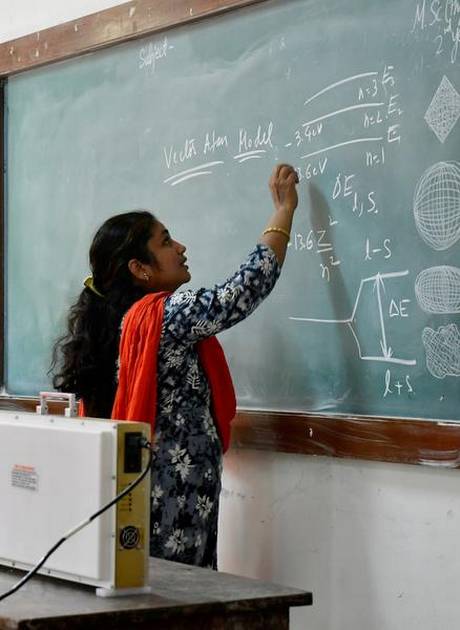Frontlist |1,200 faculty in rural engineering colleges will lose jobs by month-end
Frontlist |1,200 faculty in rural engineering colleges will lose jobs by month-endon Mar 02, 2021

“What is government talking about NEP when it cannot sustain gains of an existing project?”
A World Bank funded project to take graduates from elite institutions to rural and remote engineering colleges in poorer States is coming to an end in March, leaving more than 1,200 assistant professors out of a job and some rural colleges bereft of half their faculty. The Centre is preparing its own MERITE project with some similar objectives to improve technical education, but that may be too late for the faculty employed under the current project.
Tanmay Rath holds a Ph.D. in polymer chemistry from IIT Kharagpur, with post doctoral experience in nanomaterials research in eastern Asia. However, for the last three years, he has been engaged in a project teaching chemistry to undergraduate engineering students in Motihari, a small town in Bihar’s East Champaran district.
“I was hired under the TEQIP [Technical Education Quality Improvement Programme] project along with other NIT and IIT graduates and recruited to teach in some of the poorest and most remote areas. In Motihari Engineering College, there are 52 faculty but 20 are from TEQIP,” he said. The region is so remote that he has left his family behind in West Bengal.
“We have transformed the teaching system here. There were no practical lab classes being conducted at all until we came,” he added. “I don’t know how they will manage to teach the classes once our contract finishes on March 31. In the Chemistry department, the only other faculty is also retiring at the end of the month. We have been appealing to the State and Central governments, but no one is willing to take the responsibility for the fate of these faculty or the students.”
Three phases of the ₹3,600-crore TEQIP project have been completed since it was launched in December 2002. The third phase focussed on improving quality and equity in engineering institutions in seven low income, eight northeastern and three hilly States. Among the initiatives was a bid to recruit more than 1,500 faculty from top institutions — four out of five are from the NITs and the IITs — and send them to colleges that could never have afforded them. They were paid salaries in accordance with the Seventh Pay Commission. Now, neither States nor Centre is willing to commit to continued funding.
“What is the government talking about a new National Education Policy when it cannot even sustain the gains of an existing project?” asked Rabel Guharoy, a computer science faculty hired under TEQIP at the University College of Engineering and Technology in Hazaribagh, Jharkhand.
Article
colleges
Frontlist
MERITE
National Education Policy
News
rural engineering colleges
world bank project



.jpg)






.jpg)

.jpg)

.jpg)

.jpg)
.jpg)










Sorry! No comment found for this post.